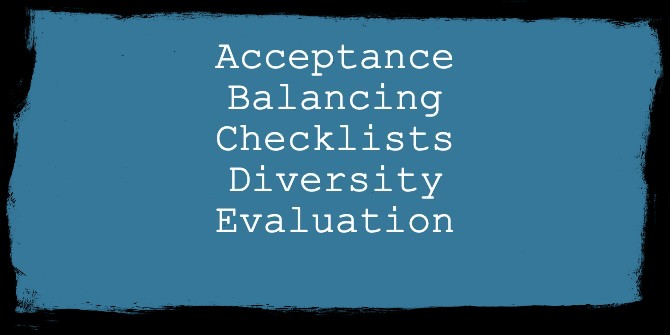How have we made decisions about handling COVID-19? Did they take account of trade-offs to individual welfare, or were they prone to narrative bias? Amanda Henwood (LSE) discusses a recent report written with Paul Dolan (LSE) which introduces a new framework – the ABCDE of decision-making – to alert decision-makers to the narrative traps that influence their decisions, including in high-risk situations such as the pandemic.
Since the early weeks of the pandemic, saving as many lives as possible has been the top priority for both the UK government and society at large. This is undeniably an important goal. However, once it becomes the dominant lens through which we view the current crisis, other important outcomes – including mental health, economic and education – risk being downplayed in the policy decision-making process.
In our new article for Frontiers in Psychology, we explain how the “preserve life” narrative has influenced policy responses to COVID and offer a new framework for reducing narrative bias in decision-making.
What do we mean by narratives?
Narratives provide simple stories about how we ought to live and what our priorities ought to be. During uncertain times, narratives become particularly attractive since they help us to make sense of what is going on around us. The social narrative that we ought to preserve lives at all costs is a pervasive one, and while it existed before this pandemic, COVID has certainly exacerbated it. This narrative suggests that all of us should prolong our lives in good health for as long as possible, even if we incur significant wellbeing and financial costs in the process. The fact that healthcare costs in the final year of people’s lives are so high is a clear example of this narrative in practice.
How does this apply to COVID?
The ‘preserve life’ narrative has been especially dominant in our response to COVID – though it has altered slightly from preserving lives generally, to preserving lives lost to COVID. For example, key policy decisions have been determined by a team of predominantly health, and in particular virus mitigation, specialists. Whilst this narrow focus has no doubt served us well in our aims to reduce COVID deaths, it has also caused us to pay less attention than we might otherwise to the social and economic consequences of the current crisis. In one stark example, 188 countries imposed widespread school closures, which affected more than 1.6 billion children around the world. An effective response to any crisis must consider the breadth of its impact and make informed trade-offs between these different impacts. Failure to do this in the context of COVID puts us at risk of over-providing policy responses for health impact of lives lost of Covid-19 and under-providing policy responses for social, educational, economic and alternative health impact (e.g. lives lost due to prolonged waiting times for cancer treatment).
There are certain behavioural factors that increase the likelihood of such narratives that may put policy consequences at risk: social norms, fear and situational blindness. People’s natural tendency to follow the behaviour of others (social norms) makes them more susceptible to behaviours that conform to the dominant narrative, since this is what most people will already be doing. So the more we are exposed to behaviours that conform to the preserve life narrative, the more likely we are to exhibit that behaviour ourselves, and thus further endorse the narrative. After a while, the narrative becomes so entrenched that deviating from it becomes less likely, even under conditions where that may be necessary (such as when the virus is under control). These factors must be carefully considered when making any decision, and especially when responding to a crisis.
How can we avoid the narrative trap? The ABCDE framework

Our framework for reducing narrative bias considers these behavioural factors and provides clear guidelines for ameliorating their impact. We call it the ABCDE of decision-making: Acceptance, Balancing, Checklists, Diversity and Evaluation. As an example, Balancing recommends that alternative narratives (e.g. “misery mitigation”) are considered at the decision-making stage alongside the dominant ones. We maintain that consideration of other narratives can help to balance out the bias generated by the dominant narrative, since they help to shed light on a different perspective. In this instance, misery mitigation serves to highlight the importance of life experiences as well as life expectancy, in addition to lives saved by tackling COVID.
We could probably all do with being a little bit more circumspect about the simple rules we apply to assist us in making difficult decisions. Sometimes these rules are helpful. But sometimes they blind us, and narratives are a key example. We recommend that decision-makers unblind themselves to the impact of narratives on their decision-making by applying this useful framework.
This post represents the views of the authors and not those of the COVID-19 blog, nor LSE.





